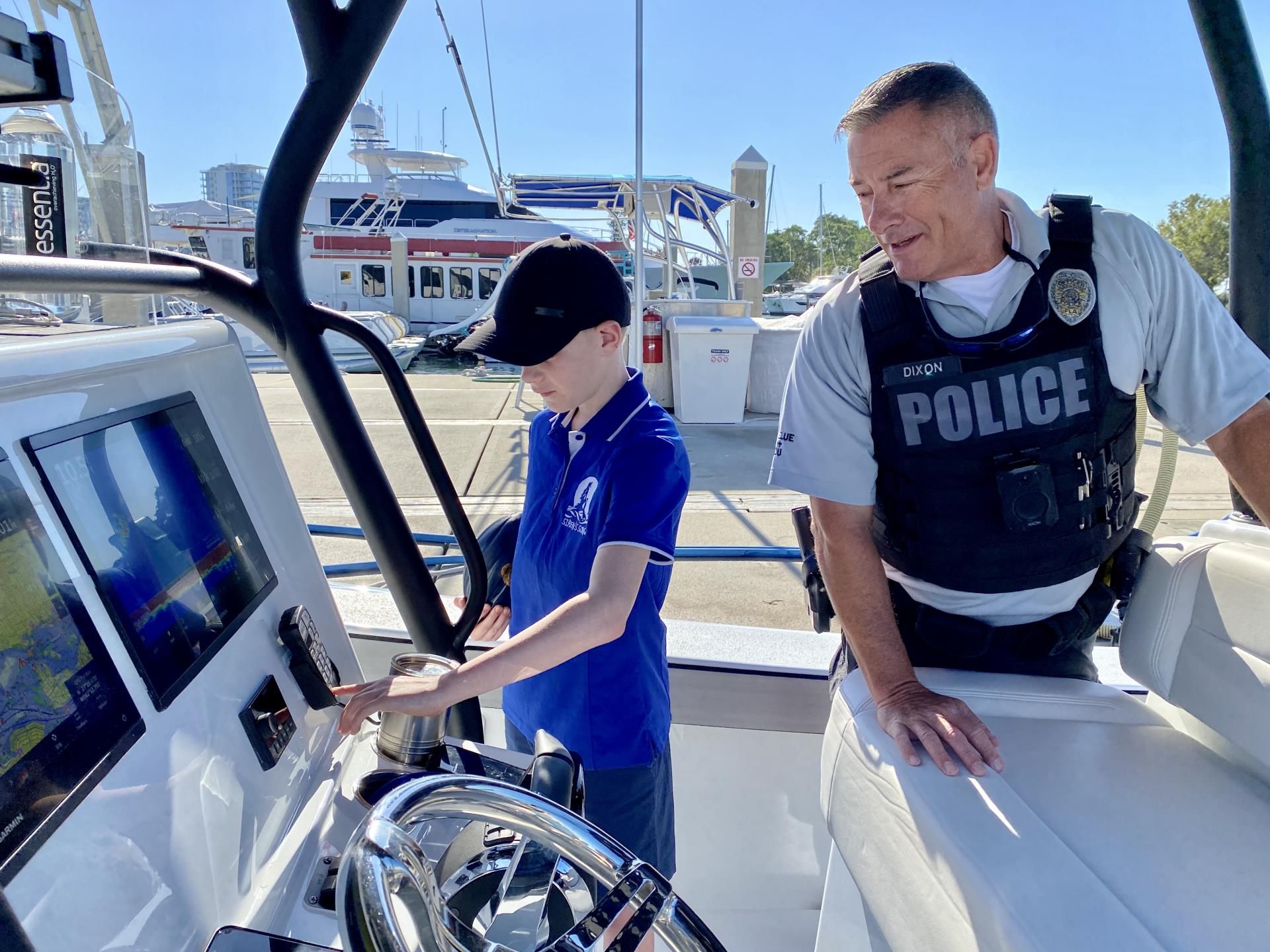
The City of Sarasota is home to some of the most beautiful beaches in the world. Whether you are enjoying the sand or Sarasota Bay, our Marine Unit wants to emphasize some safety tips.
Tips for safe boating from the Florida Fish and Wildlife Conservation Commission (My FWC):
- Wear a life jacket – According to recent boating accident statistics, half of all boating deaths are due to drowning. This tragedy is preventable by always wearing a life jacket while boating. Learn more about choosing the right life jacket.
- Be aware of your surroundings - A significant percentage of boating accidents are collisions attributed to operator inattention or improper lookout. Pay attention and maintain 360-degree awareness while operating a boat.
- Designate a sober driver—About a quarter of all boating accidents are alcohol or drug-related. Operating a vessel while impaired is illegal, and operators can face arrest if found to be under the influence of alcohol or drugs. Celebrate after you’re done boating, or make sure you have a designated driver.
- Take a Boating Safety Course - About three-quarters of operators involved in fatal boating accidents have no formal boater education. An educated boater is a safer boater! All boat operators can benefit from taking a boating safety course, even those not required to complete one. Find a boating safety course.
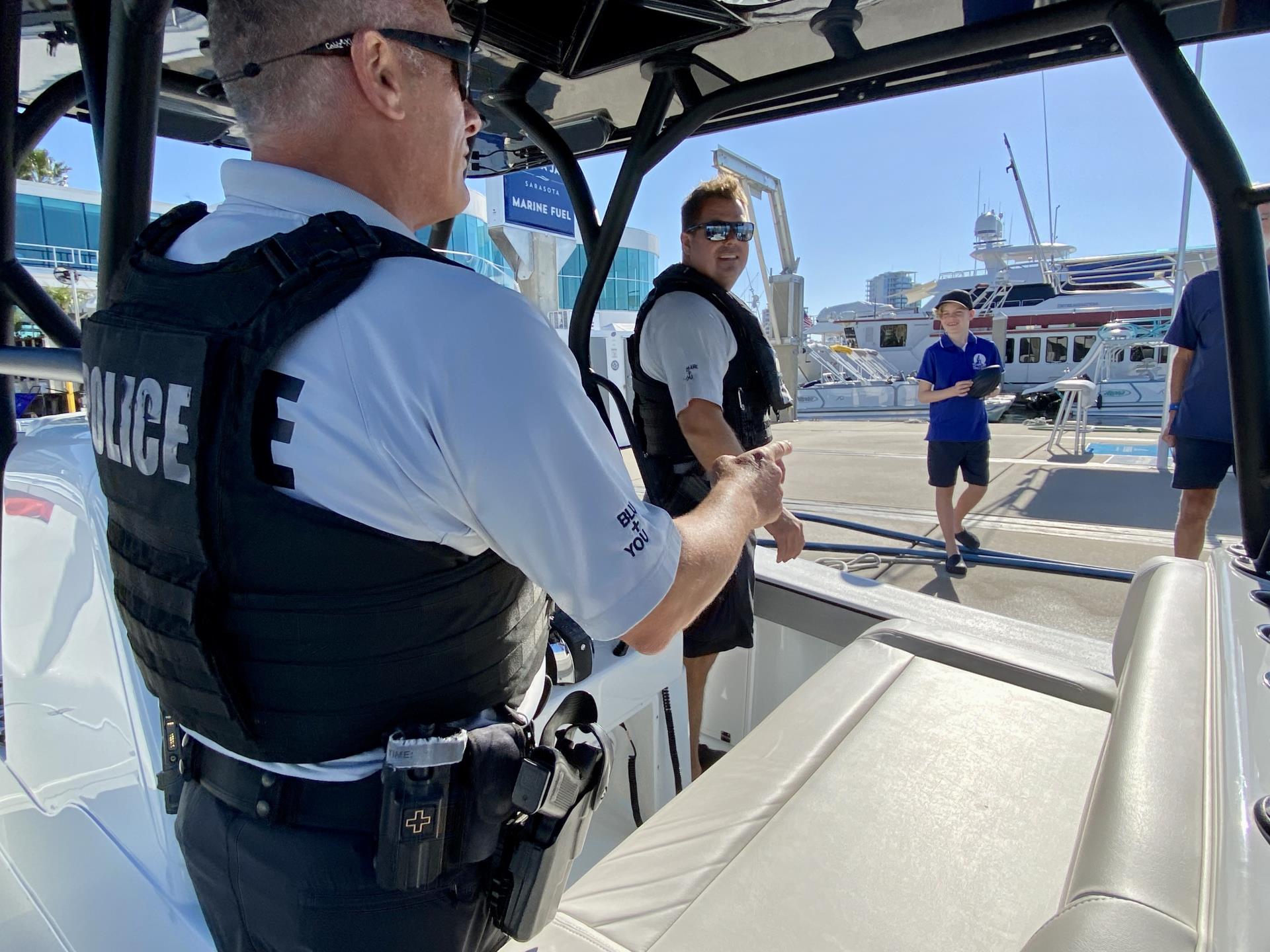
- Check your safety gear. In addition to all vessels being equipped with life jackets, boaters are also required to have a whistle or horn. The FWC recommends buying, registering, and having an emergency locator beacon onboard. Boats may also be required to have lights, fire extinguishers, and flares.
- File a Float Plan – Let family and friends know where you are going and when you expect to return. The sooner rescuers can locate an overdue boater, the more likely the outcome will be positive. Download a float plan form.
- Know Where You’re Going - Familiarize yourself with local boating speed zones before setting out, and always travel at a safe speed for environmental conditions.
- Watch the Weather – Weather on the water can change rapidly. Always check the forecast before you go boating, and keep an eye out for storms and rough seas.
- Stay with the boat – If you find yourself in open water after an accident or your boat capsizes, do your best to stay with the boat, even if it’s partially submerged. A vessel, even a small one, is more visible to rescuers, so staying with the boat can increase your chances of being found.
- Report boating violations and dangerous or irresponsible vessel operations to the Wildlife Alert Program.
- Know and follow the rules. Learn more about regulations related to boaters, personal watercraft, skiers, divers, and snorkelers at MyFWC.com/Boating.
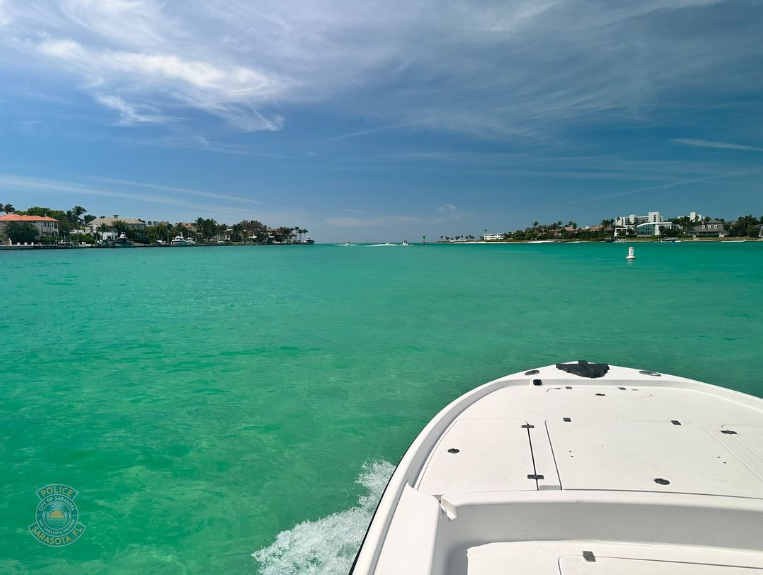
Best practices for a safe and enjoyable day at the beach:
- AVOID AN OVERDOSE OF SUNSHINE: It sounds obvious, but dehydration and sunburn can happen fast at the beach. Protecting yourself from the sun is one of the most important beach safety tips.
- Remember to drink plenty of fluids, but avoid alcoholic beverages.
- Use sunscreen often, and reapply after swimming. The spray-on kind is especially useful when you’re wet and sandy.
- Bring protective clothing and an umbrella.
- Avoid the midday sun, which is the most intense.
- Bring and wear your shades; your eyes can get sunburned, too. Make sure your sunglasses are UV-certified.
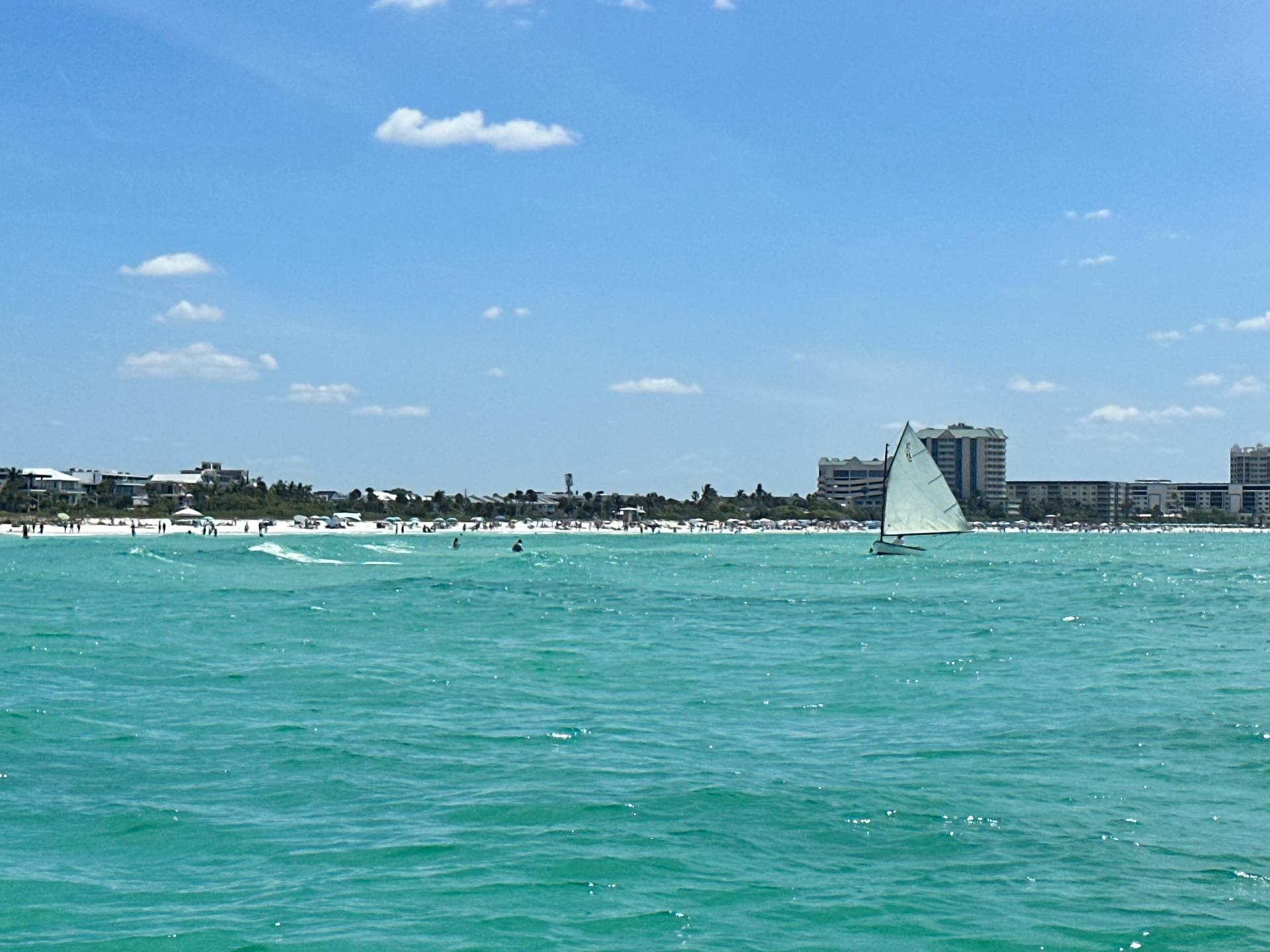
- KNOW WHAT BEACH FLAGS MEAN: Florida beaches use a uniform flag warning system to advise beachgoers of potential safety risks. These colored beach flags are there to help protect you. Here’s what they mean:
- Double Red - Danger! Water Closed to Public
- Single Red - High Hazard, High Surf and/or Strong Currents
- Yellow - Medium Hazard, Moderate Surf and/or Currents
- Green - Low Hazard, Calm Conditions, Exercise Caution
- Purple - Dangerous Marine Life (Usually Jellyfish)
- An absence of Beach Flags Does Not Assure Safe Waters.
- BE IN TUNE WITH CURRENT EVENTS: You can easily go for a swim in the ocean and end up blocks away from where you started. Pick out a landmark where you enter the water and keep an eye on it while you swim. Always swim in front of a lifeguard and in water that is waist-deep or less.
- DON'T GET CARRIED AWAY: A rip current is a flow of water moving in the offshore direction. They don’t pull people underwater – but they can pull you out to sea much faster than you can swim. Here’s our beach safety tips on how to break the grip of the rip.
- Remain calm; you need to conserve energy and think clearly.
- Never fight the current.
- Think of a rip current as a treadmill that can’t be turned off. You need to step off of it.
- Just swim out of the current in a direction following the shoreline. When out of the current, swim toward the shore at an angle (away from the current).
- If you are unable to swim out of the rip current, float or calmly tread water. When out of the current, swim toward the shore.
- If you are unable to reach the shore, draw attention to yourself by lifting your arm and yelling for help.
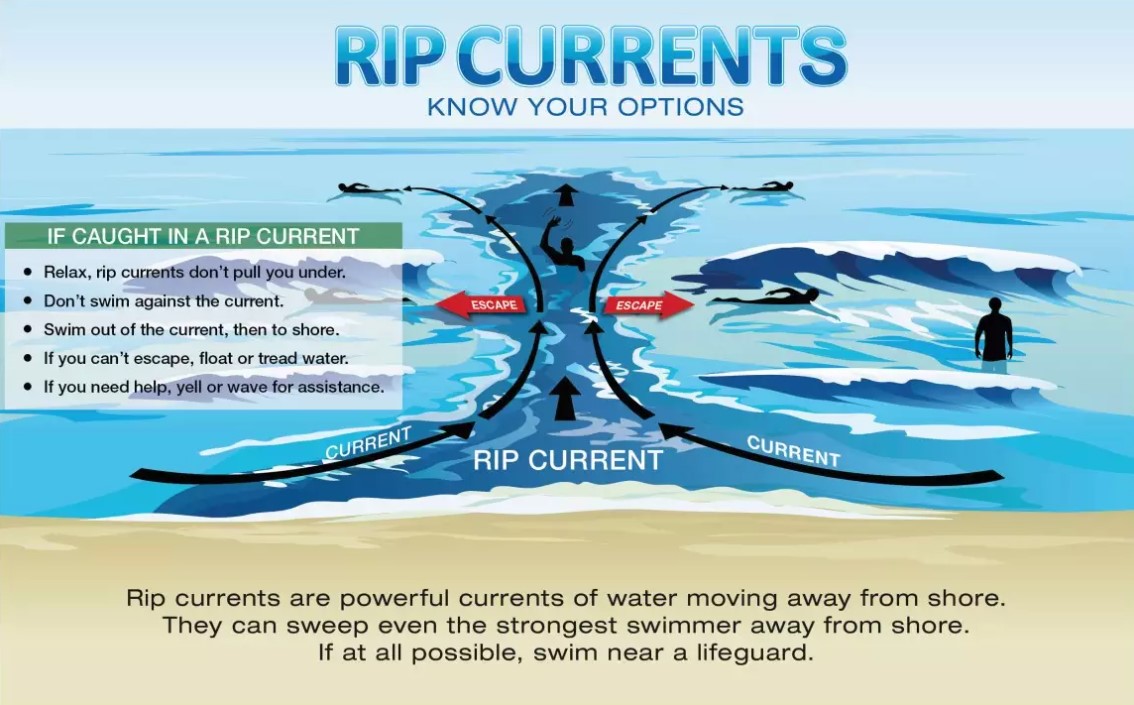
- Avoid a rip current by doing the following:
- Before going to the beach, check the weather and water conditions by looking at the local beach forecast and talking to the lifeguards.
- Only swim at a beach with lifeguards.
- If you do not swim well, know your limits. Stay within wading depths and watch for sudden drop-offs.
- More information on rip current safety is at Weather.gov/safety/ripcurrent.
- WHEN THUNDER ROARS, GO INDOORS: Lightning is a real danger. If you can hear thunder, or if a storm is approaching, get out of the water and get off the beach. Plus, most storms are not a total washout, just an interlude of an hour or two. You’ll be back on the beach in a flash!
Remember not to leave your valuables or firearms in your vehicle. Lock up when you leave. Never leave your belongings unattended when going for a swim. Most importantly, have fun, and welcome to Sarasota!